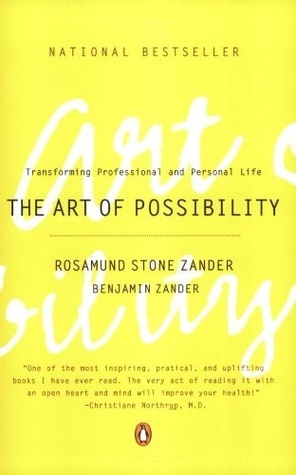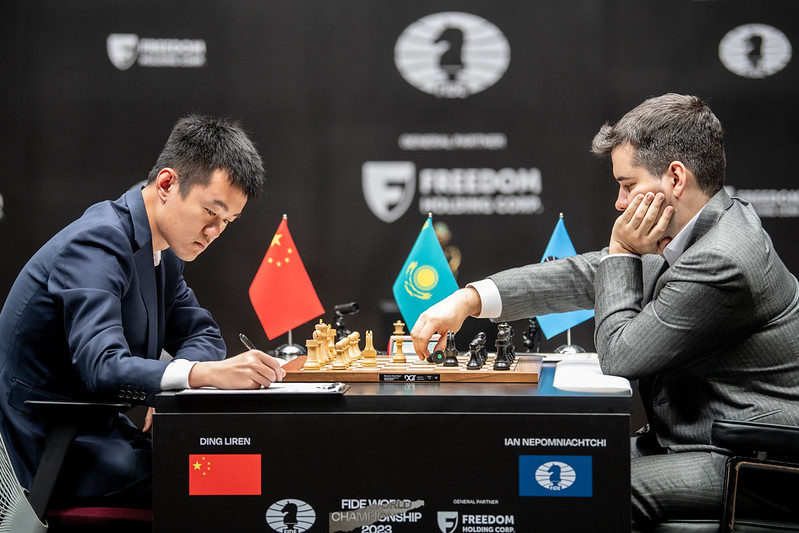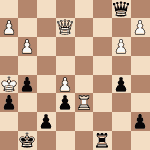The FIDE World Championship match between Ding Liren from China and Ian Nepomniachtchi from Russia is from April 7 to May 1 in Astana, Kazakhstan. While previous 21st century world championship matches featured many draws, the first half of the Ding Liren versus Ian Nepomniachtchi match had five decisive games and two draws. Decisive games include moves that are less than perfect.
Less than perfect
Most grandmasters agree that chess games, when played perfectly, should end in draws. Therefore, decisive games include mistakes.
Authors Rosamund Stone Zander and Benjamin Zander might argue that decisive games are joyous adventures. The Zanders’ book, The Art of Possibility, is a favorite of Erik Allebest, the CEO of Chess.com.
Like chess players, musicians take risks when they play. Benjamin Zander writes, “the risk the music invites us to take becomes a joyous adventure.”
Since Benjamin Zander is the musical director of the Boston Philharmonic Orchestra and the Boston Philharmonic Youth Orchestra, he often uses musical examples. He wrote:

When told by a violinist that a difficult passage in the violin concerto was virtually unplayable, Stravinsky is supposed to have said: “I don’t want the sound of someone playing this passage. I want the sound of someone trying to play it!”
Chess is like a very difficult concerto passage. The chess games between Ding Liren and Ian Nepomniachtchi are less than perfect. Yet watching their games is a beautiful experience, like listening to a violinist play Stravinsky’s violin concerto. There may be imperfect moves or misplayed notes, but those who watch, or listen, are inspired.

Photo courtesy of FIDE, © David Llada
The finale of game 6 has been widely heralded for Ding Liren’s beautiful checkmating plan. However, his move 41. d5 is not the top choice of chess engines, which prefer 41. Rb7 or 41. Ng6+. Nonetheless, chess teachers everywhere are showing their students the possible queen sacrifices in game 6.
